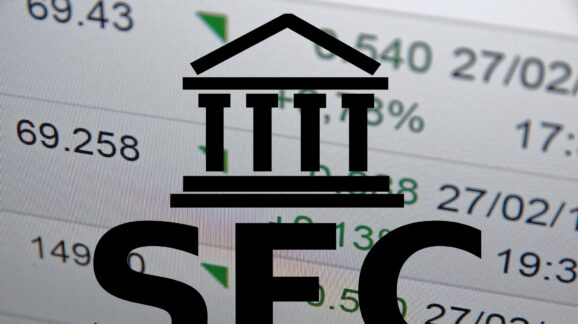Spam alert! A devastating outlook on the SEC’s final climate disclosure rule

Photo Credit: Getty
I have a paper out today, exploring the Securities and Exchange Commission’s (SEC) landmark finalized climate disclosure rule and the many challenges it presents. While the final rule is a notable improvement from the agency’s initial proposal, it still introduces the most substantial disclosure burden for public companies in US history.
The rule is facing scrutiny from both Congress and the courts, and the best outcome would be for one or the other branch of government to strike it down entirely.
The SEC’s final rule retains many of the worst elements of its proposed rule, with the caveat of removing the highly disputed “Scope 3” mandate and a less-invasive financial statement disclosure on climate risks. Scope 3 reporting requires companies to disclose data on their business partners’ and customers’ greenhouse gas (GHG) emissions across their value chain.
Only a small number of businesses (less than a quarter of all publicly registered companies) have voluntarily reported their direct greenhouse gas emissions through Scope 1 reporting. Even fewer have provided sufficient Scope 2 reporting on indirect emissions, while Scope 3 is almost impossible to standardize.
Yet, this has not prevented the SEC from barreling forward by requiring most large and many mid-sized businesses to report on their Scope 1-2 emissions. Refusing to wait for any congressional directive, the SEC has imposed what is akin to a de facto carbon tax. The greater and more diversified a business’s emissions are, the costlier their GHG disclosures to the SEC will be.
My paper expands upon my original OnPoint publication, delving deeper into the intricate disclosure requirements, constitutional problems, corporate cost burdens, and public views toward climate reporting. This work explores how the SEC’s rule will make public businesses much more susceptible to legal challenges, providing ammunition to green advocacy organizations to undermine firms that were otherwise opposed to environmental mitigation.
The unstated goal of the SEC’s rule is to spur a corporate investment shift toward climate change reduction and a concurrent divestment from traditional fossil fuel companies, mirroring similar efforts in the European Union’s push for net-zero.
The SEC has also already begun a fierce crack-down on registrant businesses for specious claims of material misrepresentation or “greenwashing” of environmental, social, and governance (ESG) funds.
The agency has brazenly attempted to redefine the traditional understanding of materiality, in defiance of multiple federal court precedents. These include the many indirect costs associated with mandatory climate disclosure and the controversial influence of proxy advisory firms promoting and profiting from ESG reporting.
If allowed to go into effect, the SEC’s climate rule will amount to little meaningful financial disclosure but will usher in a tidal wave of confusing information. Companies will not satisfy the SEC’s goal of achieving standardization and consistency in climate reporting because there is no one-size-fits-all approach; material disclosure will vary widely between businesses.
Many companies will be incentivized to overreport their perceived risks to climate change just to pacify SEC enforcement officers and avoid legal confrontation with environmental activists.
My paper provides a comprehensive analysis of the many issues inherent in the climate disclosure rule, outlining why the SEC must not be allowed to enact such a detrimental measure.
Read the press release here. Previous work on the SEC’s climate disclosure rule by my colleague Richard Morrison is here.